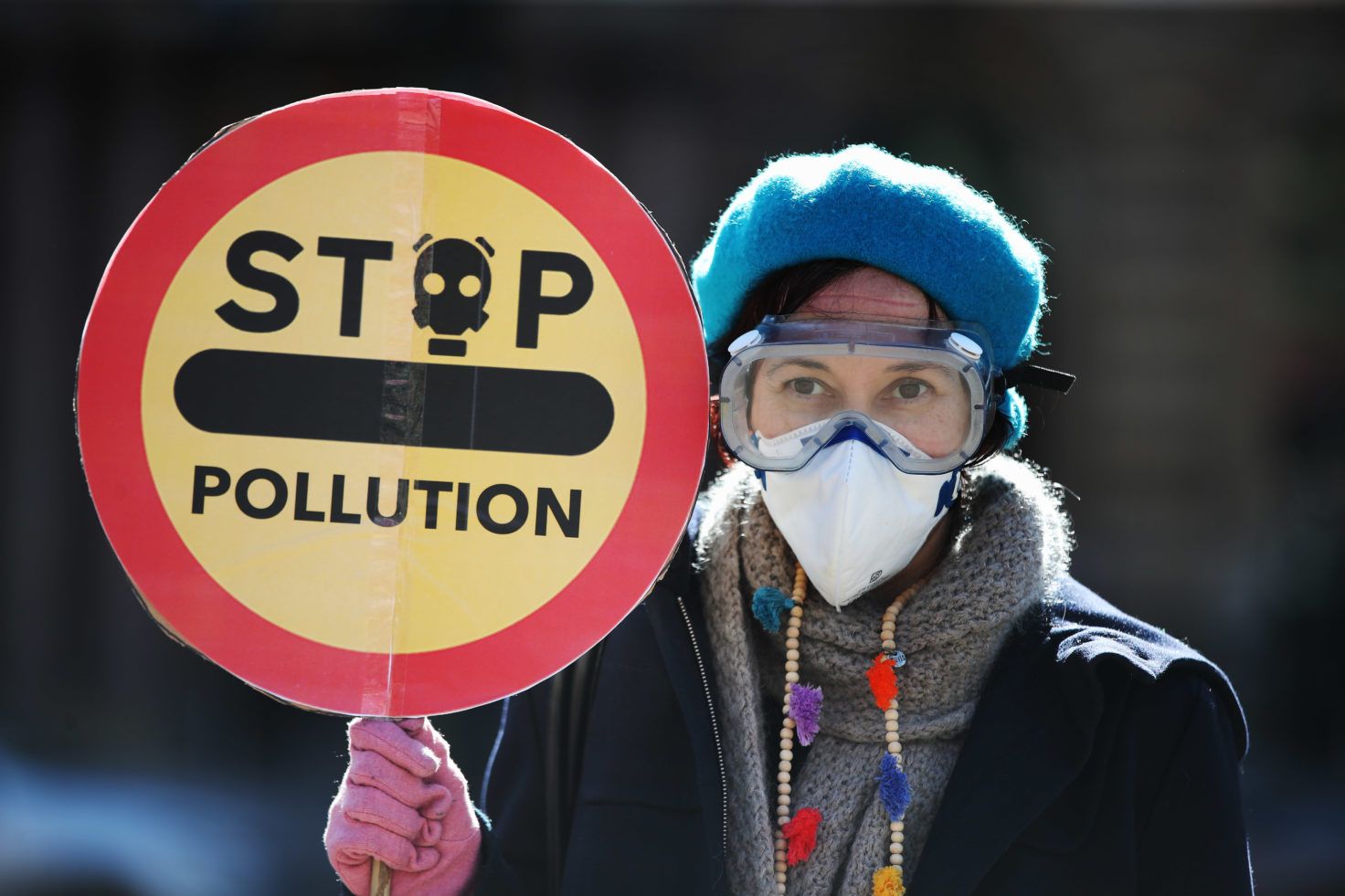
Low Emission Zone delay puts everyone at risk, say campaigners
The announcement by the Scottish Government that the Low Emission Zones in Glasgow, Edinburgh, Aberdeen, and Dundee will be indefinitely delayed has provoked concern among campaigners, who point out the links between coronavirus and poor air quality.
Air pollution kills 2,500 people in Scotland each year and puts the population at risk of serious health conditions, like asthma, heart attacks, and strokes.
The Scottish Government had committed to implementing 4 pollution zones by the end of 2020, with Glasgow’s having already begun in 2018. Initial plans for Edinburgh, Dundee and Aberdeen were for a small number of buses in the city centre to meet the minimum emission criteria in the first year. The restrictions were due to expand year-on-year, with all the oldest of all vehicle types eventually restricted from city centres by the middle of this decade.
Friends of the Earth Scotland’s Air Pollution Campaigner Gavin Thomson commented:
“Of course we’re seeing many changes to councils’ priorities, and many projects have been rightly delayed until we are through this crisis. However, Low Emission Zones were already well underway, and Covid-19 has only highlighted our urgent need to reduce pollution.
“There’s a strong evidence base on the links between air pollution and vulnerability to Covid-19. Pollution from traffic causes and exacerbates many of the heart and lung conditions that put people at heightened risk from the virus. The longstanding need to take action on air pollution to improve public health has only been heightened by this crisis. Equally, the current shutdown has exposed the need to reform our transport system and highlighted the fact that so much public space is dominated by polluting cars.
“The Scottish Government acknowledges that the huge increase in cycling, alongside the temporary road reallocation measures gives us an opportunity to reimagine our cities for the better. Restricting the most polluting vehicles from built-up areas, with Low Emission Zones, has to be central to this plan.
“The short term drops in pollution we’ve seen during shutdown will not be sustained unless Councils and Government take meaningful action to change our transport system, restricting the most polluting vehicles while prioritising walking and cycling.
“Dundee, Aberdeen, and Edinburgh Councils had all passed plans for the first year of the zones, and Glasgow’s zone was preparing to enter its third year. The Government should limit the extent of any delay, and use any pause to make sure the zones are genuinely ambitious and change our transport system.”
ENDS
Notes to Editors
1. This is in response to Transport Scotland’s release ‘Scotland’s Low Emission Zones paused’
https://www.transport.gov.scot/news/scotland-s-low-emission-zones-paused/
2. The study, ‘COVID-19 PM2.5 A national study on long-term exposure to air pollution and COVID-19 mortality in the United States’. concludes that “an increase of 1 μg/m3 in PM2.5 is associated with an 8% increase in the COVID-19 death rate”. https://projects.iq.harvard.edu/covid-pm
‘Links between air pollution and COVID-19 in England’. https://www.medrxiv.org/content/10.1101/2020.04.16.20067405v3
3. ‘Every breath we take: the lifelong impact of air pollution.’ A report by Royal College of Physicians showed how 40,000 deaths are attributable to exposure to outdoor air pollution. It has been linked to cancer, asthma, stroke and heart disease, diabetes, obesity, and changes linked to dementia. (Feb 2016) https://www.rcplondon.ac.uk/projects/outputs/every-breath-we-take-lifelong-impact-air-pollution
4. Low Emission Zones (LEZs) are areas in town or city centres where the most polluting vehicles are banned from entering. They are one of the most effective ways to protect vulnerable people from dirty air and exist in over 200 cities across Europe.
https://foe.scot/campaign/air-pollution/what-is-a-lez/
The powers for local authorities to deliver Low Emission Zones were passed in the Transport Act. https://foe.scot/press-release/transport-bill-delivers-suite-of-new-powers-to-councils-to-tackle-climate-emergency/
5. Friends of the Earth Scotland is:
* Scotland’s leading environmental campaigning organisation
* An independent Scottish charity with a network of thousands of supporters and active local groups across Scotland
* Part of the largest grassroots environmental network in the world, uniting over 2 million supporters, 75 national member groups, and 5,000 local activist groups.
